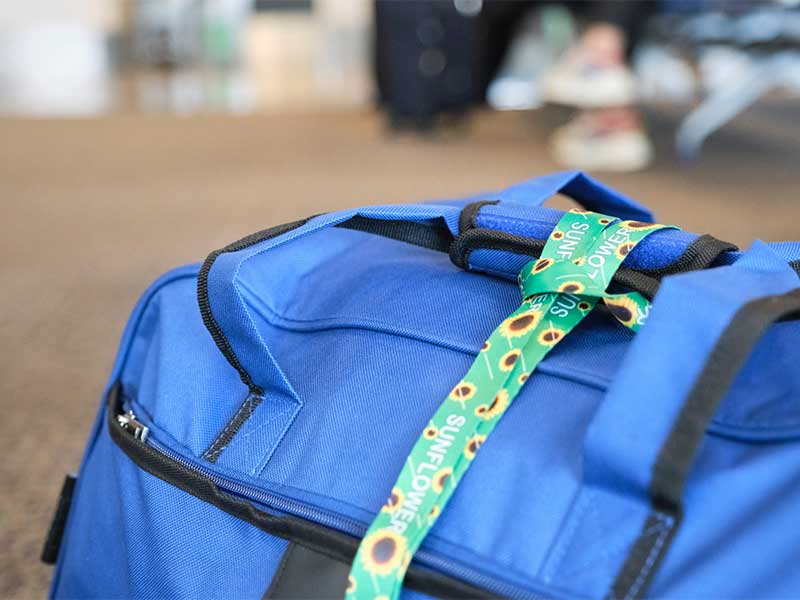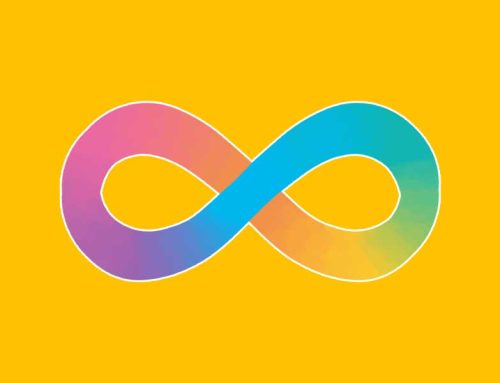16th March 2023 is Disability Access Day, sponsored by Euan’s Guide. The purpose of Disabled Access Day is to celebrate accessibility and inclusion across the UK.
With this in mind, we wanted to highlight some initiatives that can improve accessibility for neurodiverse individuals who would otherwise feel unable to enjoy some aspects of life without support. There are many schemes that are helping to work towards creating a world that is accessible to all. Here are a few useful introductions to accessibility schemes.
Blue Badge
Cost: £10 in England, £20 in Scotland, free in Wales.
Expires after: Usually 3 years.
Application: Official documentation needed.
Most people will already know what a Blue Badge is – but did you know that since 2019 it is now possible to apply for a Blue Badge if you have a hidden disability such as ADHD or ASD? If you are disabled and want to officially apply for a blue badge, you can do so here.
In relation to neurodivergence, a blue badge can help:
- reduce the psychological stress of a journey
- help those that struggle not only with the physical aspect of walking, but also the experience of walking.
- reduce the risk of not being able to park and the anxiety that comes with a change of or uncertain plans.
Access to Work
Cost: Free
Expires after: Variable
Application: Dependent on support being applied for.
Access to Work is a government-run scheme in the UK which funds disability-related support to improve access to start, or stay, in employment. Through the ‘Access to Work’ initiative, you can apply for:
- a grant to help pay for practical support with your work
- support with managing your mental health at work
- money to pay for communication support at job interviews
Access To Work may be something you want to look at when reasonable adjustments have been made by your employer, but are still not sufficient to support you to do your job.
Sunflower Lanyard
Cost: Free
Expires after: Never
Application: No documentation needed
You’re probably already aware of what a Sunflower Lanyard is – and if you aren’t, then you’ve most likely at least seen one whilst you’ve been out and about. Launched in 2016 in the UK by Hidden Disabilities, and now recognised globally, the Sunflower Lanyard is worn by people with invisible disabilities, and aims to ‘make the invisible visible’, encouraging compassion from others. The lanyard signifies that the person wearing it may need additional support, and there is no obligation to share why it’s being worn.
Sunflower Lanyards let those around you know that you have a hidden disability, and to allow you extra time or space discreetly. Sunflower Lanyards are extremely helpful when travelling through UK airports and can significantly reduce the stress of waiting in the sensory-overwhelm that is airport security queues, for example. You can also show your lanyard to airline staff who will let you board planes earlier if waiting in loud queues with little personal space is unpredictable and extremely stressful.
Airports and many supermarkets will provide a lanyard for free or for a small donation. You do not need to provide diagnostic paperwork to get a Sunflower Lanyard and therefore it is accessible to all that have additional needs. However, as there is no official ‘verification process’, the sunflower Lanyard is not recognised in all countries or at many events venues in the UK. In this case, you can look at obtaining an ‘Access Card’ which is detailed below.
A symbol for non-visible disabilities (hiddendisabilitiesstore.com)
JAM Card
Cost: Free
Expires after: Never
Application: Online form – no documentation needed. Or download app.
JAM stands for ‘Just a Minute’ and is a scheme created to help Autistic people and those with hidden disabilities discreetly ask for more time and understanding, helping them to communicate and navigate difficult social settings. By showing a JAM card, or app, employees at partnered businesses who are trained in accessibility and neurodiversity will know to offer more support and patience to those who struggle with communication barriers.
Just a minute of patience | JAM Card | Autism | Hidden disability | Northern Ireland
Access Card
Cost: £15
Expires after: 3 Years
Application: Official documentation needed
The Access Card (sometimes referred to as the CredAbility Card or a Nimbus Card) is an internationally recognised initiative that functions almost like a ‘disability passport,’ whereby additional needs and support are translated into images that are recognised by trained staff at airports and other venues where barriers may make events inaccessible for those with hidden disabilities.
An Access Card can indicate up to nine different areas of support including need of an assistance dog, wheelchair access and urgent need to use toilets. From a neurodivergent perspective, symbols such as ‘standing and queuing’, ‘essential companions’ and ‘audible information’ may be of use in reducing barriers to accessibility.
An Access Card has to be applied for with diagnostic and supporting paperwork, and is therefore less accessible to those who are self-diagnosed or are struggling to obtain a diagnosis. However, for those who do have a diagnosis of a disability, an Access Card can often be used where a Sunflower Lanyard is not.
Access Card – Making access easy
Health Passports
Cost: Free
Expires after: N/A
Application: Free printable
The National Autistic Society has created a printable ‘Health Passport’ which is endorsed by the Department of Health and promoted by NHS England. The paperwork is fully customisable for each individual to indicate and communicate their needs to healthcare professionals at times when they may be under significant stress.
When receiving medical treatment, the paperwork can be given to any healthcare professionals you come into contact with and kept with your notes for extended periods of care.
The passport has space to write personal and emergency contact details, medication and medical history, communication needs, how stress can be avoided and space for any other information that may help you in a healthcare situation.
Click here for more information: My health passport (autism.org.uk)
Learning disability charity ‘Mencap’ have also designed a health passport that can be downloaded from their website here: Health Guides: Hospital Passports, Summary Care Records And Flu Jabs | Mencap
Disability Identification
Cost: Free
Expires after: N/A
Application: N/A
Sometimes, access can be supported just by identifying your needs and communicating this with staff at venues, events and shops. Identification can empower those with disabilities that feel able and comfortable to, help to promote awareness, and also helps others to support your needs.
This can be as discreet as carrying a card in your wallet that identifies your disability and needs such as the ‘I am autistic’ card that the National Autistic Society have as a free printable resource here I am autistic card (autism.org.uk)
Many cards like these can be bought cheaply online, or even made yourself. They can be helpful to emergency services as well as used as a communication tool in overwhelming situations.
If you feel comfortable doing so, identifying your needs could include wearing lanyards, badges, pins and stickers that can also increase disability positivity.
There is, of course, no need to disclose your disability at all or identify it to others. In some cases, however, initiatives and schemes like those outlined above can help disabled people to feel accommodated and help to make otherwise inaccessible experiences accessible to all. It is important to remember that not all disabilities are visible, and this factor should not mean that accessibility is not supported.







What about a disability freedom pass?
Hello – Thank you for letting us know about the Disability Freedom Pass. We will get this added to our blog.